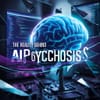A recent phenomenon has been dubbed "AI psychosis," but experts say it's rarely about psychosis at all. Instead, it's often a case of people becoming overly dependent on AI tools and losing touch with reality. This can lead to a range of issues, from mild confusion to more severe mental health problems.
The term "AI psychosis" is somewhat misleading, as it implies a psychiatric condition that's not entirely accurate. Rather, it's a situation where individuals become so reliant on AI-generated information and recommendations that they struggle to think critically or make decisions on their own.
This phenomenon highlights the need for a better understanding of how AI can impact our mental health and well-being. As AI becomes increasingly integrated into our daily lives, it's essential to recognize the potential risks and take steps to mitigate them.
By acknowledging the limitations of AI and promoting critical thinking, we can work towards a healthier relationship between humans and technology. This includes being aware of how AI can influence our perceptions and taking steps to maintain a balanced and nuanced understanding of the world.
Ultimately, the key to avoiding the pitfalls of "AI psychosis" lies in developing a more informed and thoughtful approach to AI adoption. By doing so, we can harness the benefits of AI while minimizing its potential drawbacks.


